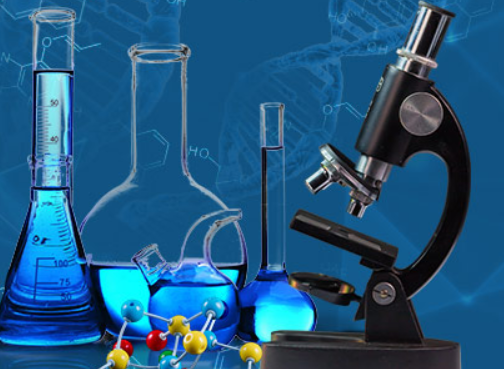The war of the biologists in Crimea and the occupied territories
Since 2023, a well-equipped branch of the Moscow Federal Medical-Biological Agency (Fmba) has been opened on the peninsula in Yalta, bringing a large team of specialists to the site. In addition to medical and epidemiological analyses, ecological ones are also being developed to counter - the Russians claim - 'American biological experiments on the territory of Ukraine'.
Simferopolis (AsiaNews) - Since 2014 Russia has been using Crimea, and now also the other annexed territories in the Donbass and on the Black Sea, as a site for biological, medical and scientific experiments of various kinds.
As recounted in a report by Krym.Realii, genetic and microorganism components are being studied, various dimensions of the surrounding environment, often modified by the devastation of war, are being measured, using also animal specimens and sea fauna, often including the local population and soldiers at the front in the research.
The Crimean peninsula has always been a very special territory due to its geographical location and turbulent history, and in April 2023, a well-equipped branch of the Moscow Federal Medical-Biological Agency (Fmba) was opened in Yalta, bringing a large team of specialists to the site and occupying a large part of the local city hospital.
The Rostekh company then constructed and set up specific buildings and equipment for research at various locations.
In addition to medical and epidemiological analyses, ecological ones are also being developed under the direction of the Vnii Scientific Research Institute in Simferopolis, which answers to Russia's Ministry of Ecology with research covered by state secrecy.
According to the director of Vnii, Aleksandr Zakonodyrin, a new facility will soon be ready that 'will be responsible for the ecological well-being of the whole of southern Russia and the Azov Sea region'. Biodiversity is being studied by trying to eliminate the residues of petroleum products, using carbon dioxide.
The 'Crimean State Sanitary-Epidemiological Control Centre', which reports directly to the presidential administration of the Moscow Kremlin, is also active in Yalta, where experiments are carried out in the fields of bacteriology and hygiene, physico-chemistry, microbiology, radiology and toxicology.
Drinking water sources, foodstuffs and air quality according to sanitary standards are also studied to identify the factors responsible for infections. Associated with it is the Sevastopol Hygiene and Epidemiology Centre, which depends on the local branch of the Rospotrebnadzor consumer agency and is structured in the city and provincial sections of the peninsula, with large research programmes, up to the 'Crimean Plague Control Station' and other serious infectious diseases.
A special stimulus for the intensification of all these activities came directly from the Moscow Defence Ministry after the start of the special operation in Ukraine in 2022 to counter 'American biological experiments on the territory of Ukraine'.
The US and EU representations at the UN reacted to these accusations, calling them 'disinformation in the context of conspiracy theories'. The Russians, however, insist on calling the whole of Ukraine the 'Pentagon's laboratory', and pay particular attention to the foreign equipment requisitioned in the occupied territories, along with the local personnel involved in its use.
Last month, a new molecular genetics laboratory was opened on the basis of the Regional Agricultural Research Institute, appointing Vladimir Paštetskij as its director, who defined the aims of the new facility as 'research of animal and plant genotypes for the selection, production and reworking of preparations necessary for cultivation and breeding'.
In the laboratory, all types of micro-organisms and bacteria are catalogued and the possibility of adapting them to the conditions on the peninsula is assessed, and the activities are linked to those of the Institute of the Biology of the Southern Seas (Inbjum), a Ukrainian facility requisitioned and renovated by the Russians, using special laboratory ships.
The results are also compared with those of other Russian laboratories in Africa, in countries such as Uganda, Guinea, Djibouti and Zimbabwe, but also in India and Vietnam and other parts of the world, where the Russians are trying to seize nature's secrets, in a 'world biological war' yet to be fought.
07/10/2022 09:15
22/09/2022 08:55
03/03/2022 09:42
26/01/2022 09:40







.png)










